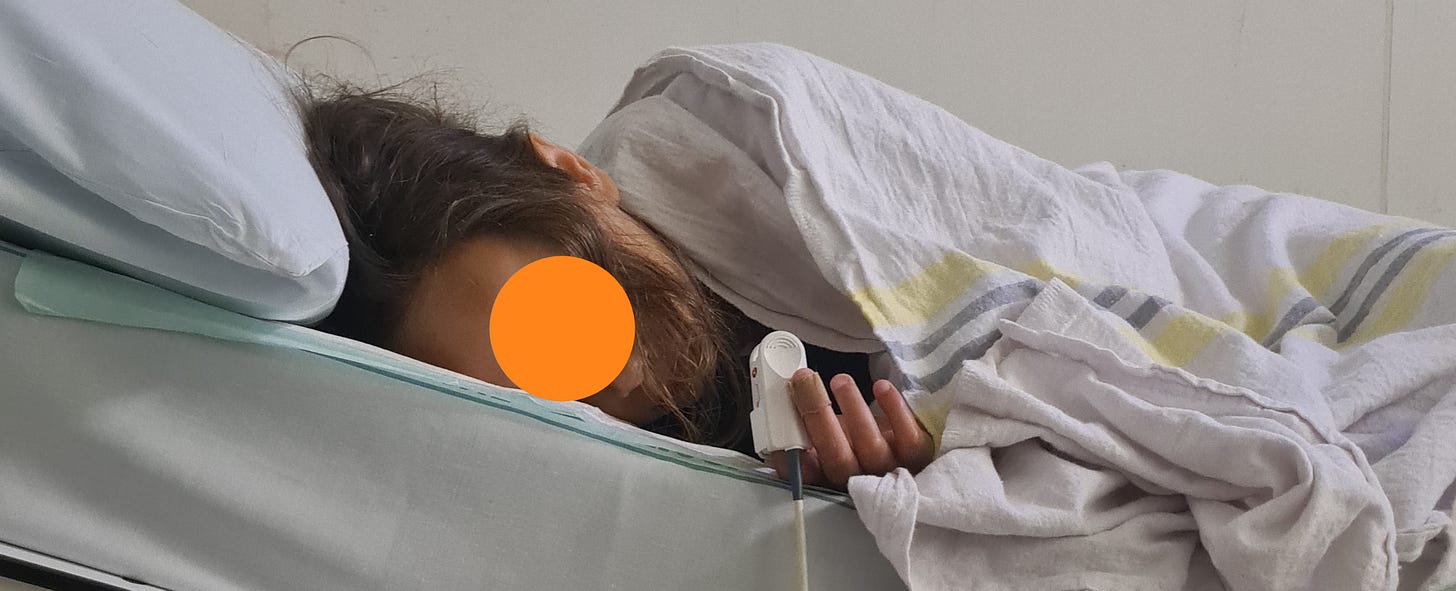The cruelty of punitive sanctions
they cost us all more in the long run
The cruelty of punitive sanctions impacts us all - and it costs us more long term.
On 12 August, the Minister for Social Development announced changes for those in receipt of welfare benefits1, including Jobseeker Support and Sole Parent Support. These changes included punitive sanctions. The exact details regarding the implementation of these sanctions remain unclear. Nonetheless, recent news reports indicate that these sanctions being unfairly and inconsistently applied by welfare office (Work and Income) staff.
Studies on punitive welfare sanctions consistently show negative health outcomes. A 2020 UK-based study found they caused symbolic and material suffering, sometimes with life-threatening effects. A 2020 systematic review found a wide range of negative impacts, including the following:
an increase in material hardship
an increase in food deprivation
an increase in the experience of financial hardships
worse physical and mental health
behavioural problems and poorer cognitive development in children
Studies on employment and financial outcomes consistently show long term negative impacts. Longitudinal data from the US in 2013 found that welfare sanctions resulted in a statistically significant negative effect on earnings, and that, long-term, sanctions did not reduce welfare use and failed to improve earnings in marginalised families.
Imposing punitive welfare sanctions sees those receiving welfare scramble to find any available work, resulting in a short-term ‘bump’ in employment figures. However, over time, the opposite occurs: imposing sanctions leads to lower-quality employment, insecure employment, and worse financial outcomes. Within even two years, those who have been sanctioned are significantly less likely to be employed, are more likely to be in lower earning jobs, are more likely to have shorter employment terms (i.e. leave jobs earlier), and/or be under-employed. These figures are significantly different when compared with those persons who have not been sanctioned. The detrimental impacts of sanctions are persistent and continue for several years.
To be clear, the use of welfare sanctions is highly ineffective as a tool for facilitating people to move off welfare and into paid employment over time.
Sanctions drive poverty by forcing people into inadequate paid work and insecure employment terms while simultaneously undermining the positive social outcomes of employment and emphasising intensive job-seeking. All while leaving poor-quality employers unchecked.
Last week’s announcement initially appeared to include Supported Living Payment (what was once known as the invalid’s benefit). This has since been quietly rolled back. Work and Income no longer lists Supported Living Payment as included in the new “traffic light system”. MSD – Ministry of Social Development also made a clear statement on their Facebook page that those in receipt of SLP do not have to look for work and may have obligations to *prepare* for work. This lack of clarity caused a great deal of distress.
Nonetheless, disabled people will be impacted. There are 82,506 “non work ready” persons who receive Jobseeker Support (Health Condition or Disability). These are people who would have been on the old ‘sickness benefit’ – and who are now subject to punitive sanctions. Parents of a disabled child who are in receipt of Jobseeker or Sole Parent Support are not exempt from the imposed sanctions.
Welfare sanctions do nothing to address the structural barriers (e.g., disabling environments and discriminatory practices) that disabled people routinely face when looking for paid work.
Welfare sanctions do nothing to support a parent providing care to a child in hospital. They do little to assist a disabled child to attend school full-time or address the lack of wider supports.
In addition, welfare sanctions exacerbate existing illness and impairment, increase the social exclusion of disabled persons, and trigger negative health outcomes. These outcomes all reduce the likelihood of employment.
People’s ability to access or increase their hours of paid work routinely has little to do with their behaviour. Rather, it reflects wider societal supports, labour markets, and/or employer workforce needs.
Suffice to say, all sanctions do is drive poverty and create harm. It’s an unnecessary cruelty.
It is shameful that this government has chosen to harm some of our most vulnerable families in this way.
For more local examples of the high cost of sanctions, read this excellent Substack from Good IDEAs:
The term welfare is more widely used than the NZ colloquialism of ‘benefits’. In this post I’ve used the term welfare instead of benefits to fit with the literature that I’ve drawn on and for consistency.
An earlier version of this post included reference to a 2023 global review of the impacts of sanctions which found health was always negatively impacted when sanctions were imposed. These sanctions were economic sanctions and it confused the argument somewhat (although it seems the outcomes are highly similar).





I wrote about this a few weeks ago - when I first developed Long Covid I was in a really high stress abusive relationship and leaving that drastically improved my symptoms and ability to cope with them. It made me realise that I was in a similar really high stress abusive relationship in 2015 when I developed ME/CFS - with WINZ, who were threatening me with sanctions once a month over obligations I was never meant to have. Stress makes people sicker, and keeps us sick longer, and none of it's okay. A functioning state welfare system, in relationship with all state services operating appropriately, shouldn't require sanctions.
I’m trying to share this on Facebook but every time it is removed because apparently I’m posting “to get likes” which is against their guidelines. WTF Facebook?